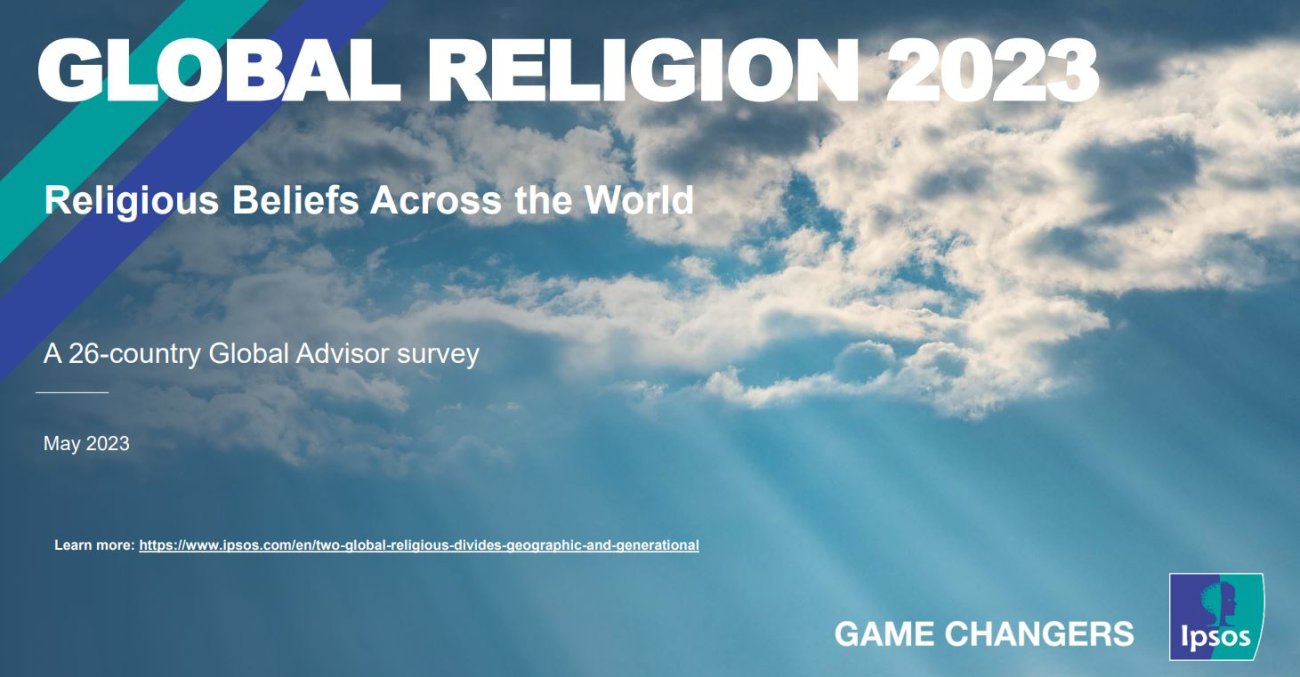Study: Brits wary of religion but at ease with religious difference
Posted: Fri, 12th May 2023
People in Great Britain are increasingly wary of religion yet comfortable with people belonging to different religions, figures suggest.
A new survey on global religion by Ipsos found 66% of British people agree with the statement: "Religion does more harm in the world than good".
This is the third highest percentage of all 26 countries surveyed, after India and Sweden. It has increased by 4% since 2017. The average across the 26 countries is 47%.
But the figures also indicate Brits have become more tolerant of religious difference. Eighty-eight per cent agree with the statement "I am completely comfortable being around people who have different religious beliefs than me".
This percentage, one of the highest among the countries surveyed, is the same as other countries in the Anglosphere and has increased by 3% over the last six years.
British people are also largely tolerant of nonreligious people. Only 15% agreed with the statement: "I lose respect for people when I find out that they do not have a religious faith".
And less than three in ten Brits (27%) agree that "people with a religious faith are better citizens".
However, both figures have increased by 5% since 2017, suggesting tolerance for irreligion may be waning. Those in the Gen Z demographic were considerably more likely to hold these views than baby boomers.
Most Brits don't pray and don't see religion as important for citizenship or happiness
Ipsos found there is an almost 50:50 split between religious and nonreligious people in Britain, with 48% identifying with a religion (39% Christian, 6% Muslim and 3% other religions) and 48% with no religion. The remaining 4% preferred not to say.
Ipsos' findings are largely consistent with the 2021 Census of England and Wales, which found 38% of people have no religion, while 46% are Christian and 6.5% are Muslim.
Other figures in the Ipsos report suggest that religion does not play a major role in the lives of most Brits. Only 18% pray at least once a month at a place of worship and 25% pray outside a place of worship (for example, at home).
However, the percentage of Gen Zers who pray in either setting is higher than for than Boomers. They are also more likely to believe in God. Ipsos said this reflects a global trend in which countries where young people are more likely to be Muslim, they are also more likely to to view their religion as a marker of their identity, and to associate religion with morality.
The 2021 Census found Islam is the youngest religion or belief group in England and Wales, while Christianity is the oldest.
Less than half of Brits agree that their religion defines them as a person (27%) or that people with a religious faith are happier (39%).
Ipsos said globally, the percentage who say religious people are happier tends to mirror the percentage who regularly attend a place of worship. Additionally, the higher the proportion of believers in a country, the more likely believers are to feel they benefit from their faith, Ipsos found.
NSS: Politicians should refrain from divisive pro-religion rhetoric
Megan Manson, head of campaigns at the National Secular Society, said: "Pro-religion politicians and religious leaders alike frequently use the argument that religion makes people happier or better citizens to push for more religion in public affairs.
"But this survey reveals most Brits feel very differently. They think religion causes more harm than good, and that religious and nonreligious people are equally worthy of respect. This should be reflected in policy on religion and society.
"It is heartening to see that despite their critical views on religion, most Brits are very comfortable with people of different religions and beliefs.
"But the slight decline of tolerance, especially among young people, for those with no religion is cause for concern. That's why politicians should refrain from rhetoric which implies religious people are somehow better than the nonreligious. Not only is such rhetoric untrue – it can cause needless division and prejudice in an otherwise tolerant Britain."








